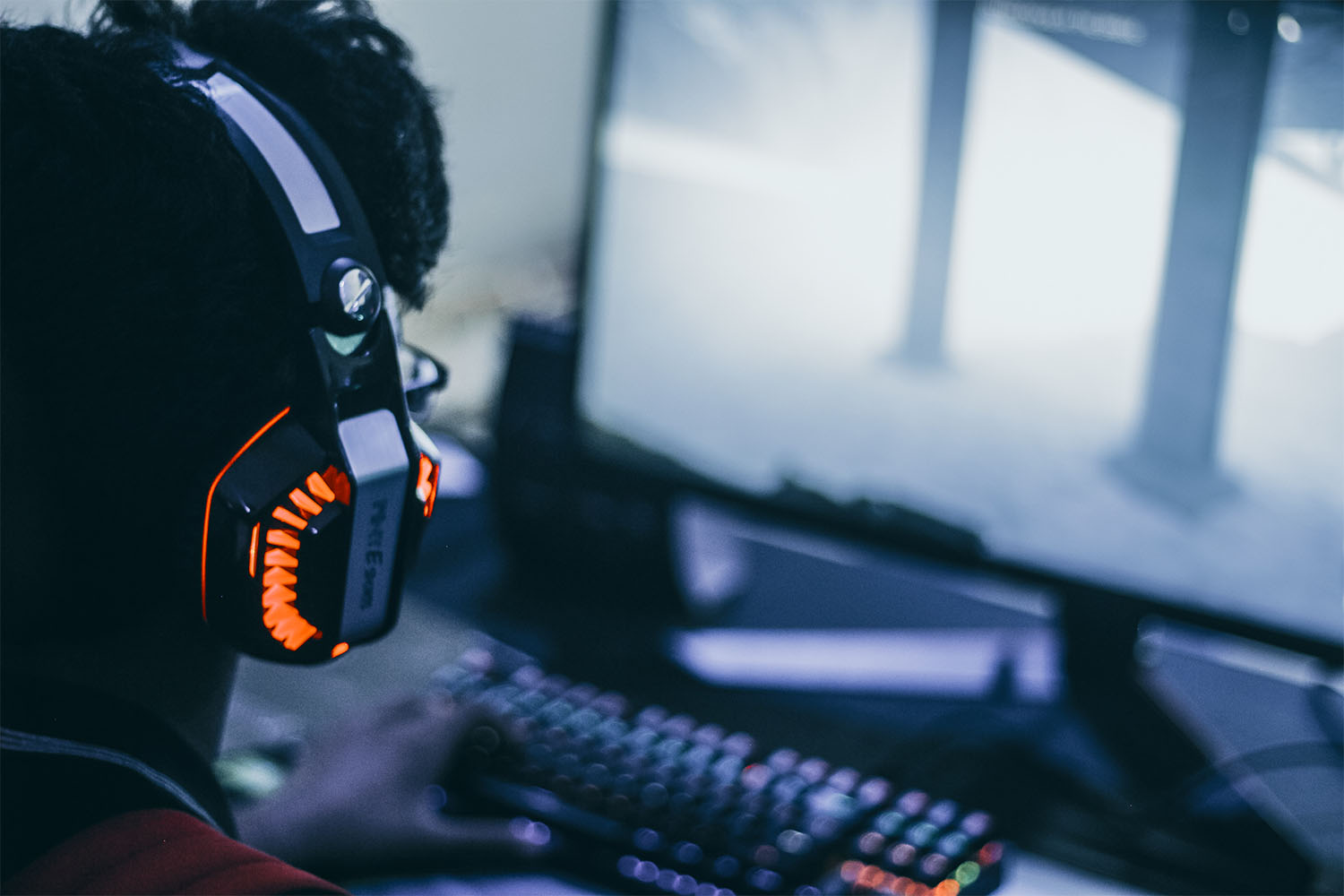Game over for second-hand game sales in France
Published on 12th January 2023
The Paris Court of Appeal has decided the judicial battle between consumer group UFC and an online video-game platform

Can downloaded video games be sold as "second-hand" items? Publishers and distributors are generally saying no, and making it clear in their license terms that user accounts or individual games linked to them are not transferable. Consumer groups throughout Europe, however, have made the argument that such clauses are unfair and unenforceable.
The Paris Court of Appeal has now decided a judicial battle that started in 2015 between consumer organization UFC-Que Choisir (UFC) and the provider of an online video-game platform. The decision is straightforward: digitally distributed video games (the court calls them "dematerialized") cannot be resold as second-hand.
The decision contradicts and repeals an earlier French judgment in 2019 that had sided with UFC and ruled that users may resell purchased games. Given the impact of the trial court's ruling – potentially opening the door to a market for second-hand dematerialized video games in France – this decision had been much awaited. The implications of such a ruling could also have triggered similar claims in Europe – and significantly impacted the video game market, capitalized at more than US$300 billion worldwide ($41.4 billion of which are for digital PC games). However, this won't happen today or tomorrow.
Plot twist
However, in a plot twist, the Paris Court of Appeal ruled against the second-hand sale of games purchased on Steam. It had been established since the Court of Justice of the EU (CJEU) UsedSoft decision in 2012 that the doctrine of exhaustion of distribution rights in European copyright law allowed the second-hand resale of copies of software programs. But what about video games? In 2019, the Paris Tribunal of First Instance thought that this case meant a second-hand market had to be possible for games as well.
The Court of Appeal disagreed, citing differences between software copyright and copyright for other types of works. The CJEU's approach in the Tom Kabinet decision – released a few months after the Paris Court of First Instance decision – regarding the application of the doctrine of exhaustion for second-hand e-books likely influenced the change of course in France.
Indeed, EU Directive 2001/29, which concerns general copyright rules, submits tangible works to the principle of exhaustion of rights. However, the CJEU has clarified that this rule does not apply to dematerialized works covered by this directive. In its Tom Kabinet decision, the court determined that the supply to the public, by downloading for permanent use, of an e-book is covered by the reproduction right and the concept of communication to the public. Therefore, the owner of such works has the right to prevent its communication to the public because it does not constitute an act of distribution subject to the rule of exhaustion of rights.
By contrast, Directive 2009/24, only applies to computer programs. Under this directive, the legislator intended to assimilate tangible and dematerialized copies of computer programs so that the exhaustion of the distribution rights concerns all such copies.
Complex work
In the Paris Court of Appeal decision, the UFC raised the particular nature of a complex work such as a video game and questions the court which directive applies. It seems that the Paris Court of Appeal thought it was time to harmonize the application of the doctrine of exhaustion for dematerialized work in Europe and align with the jurisprudence in other EU jurisdictions.
The CJEU's 2014 Nintendo case stated that video games constitute complex work comprising computer programs and graphic and sound elements. The graphic and sound elements – although encrypted – are part of the originality and are protected with the entire work by "classic" copyright under Directive 2001/29. Similarly, in the Tom Kabinet decision, the court pointed out that an e-book is protected because of its content (an essential element). Therefore, the fact that a computer program may be a part of an e-book to enable it to be read cannot result in applying the specific provision of Directive 2009/24 on computer programs.
It emerges that computer programs are protected by copyright, provided they are original. The Directive 2001/29 does not indicate that parts of the work are subject to a different regime than the whole work – they are protected by copyright as long as they contribute to the originality of the work.
In the present case, a dematerialized video game is not only a computer program but also graphics, music, sounds, scenarios, and characters – that participate in the originality of the work. Therefore, these creations are entitled to protection as a whole under Directive 2001/29. Selling dematerialized video games through a platform like Steam consequently falls under the reproduction right and is not subject to the rule of exhaustion.
Money, money, money
As the Swedish quartet might have sang: money, money, money, it's always sunny in the video game world. As highlighted by the Paris Court of Appeal at the beginning of its decision, the principal objective of Directive 2001/29 is to establish a high level of protection for authors, allowing them to obtain an appropriate reward for the use of their works – including when communication to the public takes place.
The principle of equal treatment is the main reason for Directive 2009/24 to treat similarly the transmission of tangible and intangible copies of computer programs. From an economic point of view, the sale of a computer program on a material medium and the sale of a computer program by downloading it from the internet are similar. The court additionally points out that the online transmission method is the functional equivalent of the supply of a material medium – accordingly, the two transmission methods must be treated similarly.
Contrary to computer programs, in Tom Kabinet, the CJEU makes it clear that the supply of a book on a material medium and an e-book cannot be considered equivalent from an economical and functional point of view. To entrench its position, the CJEU first mentioned that dematerialized digital copies, unlike books on a material medium, do not deteriorate with use and are perfect substitutes for new copies.
Furthermore, the CJEU added to its reasoning that exchanging such copies requires neither additional effort nor additional cost. A parallel second-hand market would likely affect the interest of the copyright holder – contrary to the objective of the directive and the intention of the EU legislator.
In the same way, the Paris Court of Appeal determined that video games are quickly found on the market once the game is over. Unlike computer programs intended to be used until their obsolescence, video games can still be used by numerous new players several years after their creation. Like in the Tom Kabinet case, the supply of a video game on a material medium and the supply of dematerialized video games cannot be considered equivalent from an economical and functional point of view.
German courts in line
However, courts in Germany are already in line with the CJEU's rulings. The Paris Court of Appeal's decision follows other European case law, and the tone was set in 2010 by the German Federal Court of Justice in a decision about the physical games that could only be played if connected to a non-transferable user account by means of a one-time license key. This meant that the CD-ROM containing the game could be resold, as exhaustion applied to the physical copy, but the buyer could not do anything with the game.
The Federal Court of Justice stated that the doctrine of exhaustion was an exception to copyright protection but did not oblige providers to make their accounts transferable. In other words, copyright law did not necessarily protect the economic interests of would-be second-hand market participants if the creator of a work designed their product in such a way that resale was not economically attractive.
The Higher Regional Court of Berlin later confirmed this case law after the CJEU's UsedSoft decision for digitally downloaded games that were also tied to non-transferable user accounts. The courts make it clear that the extensive interpretation of the doctrine of exhaustion retained in the UsedSoft case did not apply to any services connected to distribution platforms, and even took its reasoning a step further, considering that the UsedSoft extension of the doctrine of exhaustion to intangible copies does not apply to computer games – correctly anticipating the European judges' decisions in the Nintendo and Tom Kabinet cases.
Osborne Clarke comment
Even if this decision is not surprising given the recent development of the CJEU jurisprudence, it ends the widening application of the principle elaborated in the UsedSoft case to all intangible goods likely to be resold second-hand protected by the 2001/29 Directive. The Paris Court of Appeal refused to refer the matter to the CJEU, and the UFC could appeal to the French Court of Cassation to counteract the decision, which is therefore not entirely final. However, we believe it to be correct, and a different outcome for the UFC unlikely, given the CJEU's position and previous rulings.






